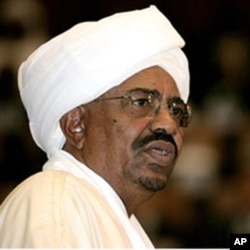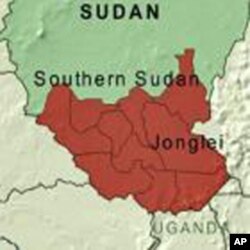This week, the government of Sudan named a new 35-member cabinet. Nine positions went to the Sudan People’s Liberation Movement, SPLM, including the ministries of investment and cabinet affairs. SPLM member Lual Achuil Deng was named to the head the oil ministry.
Six portfolios went to small opposition parties in the north and south.
The ruling National Congress Party controls the remaining cabinet seats, including finance, defense and the interior. President al-Bashir has named NCP member Ali Karti to head the Ministry of Foreign Affairs. Karti told the press that any dispute over next year’s referendum over southern independence could lead to renewed war between the north and the south.
Tough Negotiations
Political analyst El-Moiz Abunura says the new minister “will represent the hard line in foreign policy ….[the administration] will go more for confrontation than reconciliation in the coming six months.”
Abnura says Karti will likely be a tough negotiator on issues that have yet to be settled between the two regions in the lead-up to the referendum.
Among them is the demarcation of their shared border, which runs along lucrative oil fields. Officials from the north and south have also not settled the issue of the rights of northern merchants who own property in the south and southerners who live and work in the north. There’s also controversy around the nomadic Bagara nomads who cross from the north into the south to feed their livestock. The Government of Southern Sudan has blocked their seasonal movements.
Oil and transparency
Professor Abunura also commented on the naming of Lual Achuil Deng to the oil ministry. Until recently, the department and two others dealing with mining and electricity were part of the Ministry of Energy and Mining. Recently, President Bashir divided them into three separate units.
Abunura, who is also a former oil economist with Sudan’s General Petroleum Corporation, says “although he is a central minister, [Deng] does not have much power at the moment, because [of the split in the Ministry of Energy]. They’ve added [management of] dams to the new Ministry of Electricity [including the large and controversial Merowe Dam 350 km north of Khartoum on the Nile River]. The new head of that ministry [Osama Abdullah Mohamed El-hassan] is a powerful minister and a hardliner with the National Islamic Front."
Deng’s appointment to the oil ministry follows allegations that the central government has not been providing the south with a fair share of the revenues from the export of petroleum, as elaborated in the 2005 Comprehensive Peace Agreement that ended nearly two decades of civil war.
“In the next six months [leading up to] the referendum,” says Abunura, “the National Congress Party wants to assure the SPLM that it shares in the oil wealth, and the distribution of the income from oil is its real share. There is no cheating. It may help the wing of the SPLM that wants strong ties with the [ruling] National Congress Party….”
Seniority counts
SPLM members make up about a third of the new cabinet; a figure Abunura says matches the approximate percentage of southerners in the country. However, he says it’s not a question of percentages, but the status and experience of the new SPLM cabinet ministers. He says it appears the party’s most powerful members have remained in the Government of Southern Sudan:
“I don’t think the [SPLM] ministers are senior members apart from one or two,” says Abunura. “It looks as the prominent and senior members of the SPLM are in the government of Southern Sudan, which also indicates that the separatist [southern nationalist] wing of the SPLM is the one dominating [the party] now. As a political analyst, I would look to the formation of the cabinet as a transition one to a two-state solution in Sudan.”
He says it would benefit the south to have experienced and senior members of the SPLM in the central government in Khartoum to ensure change takes place smoothly and peacefully.

